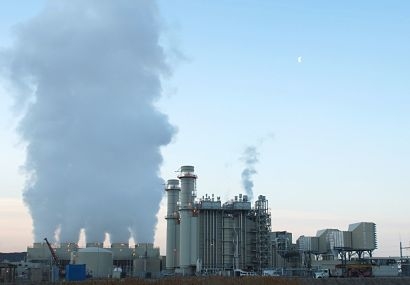
This vote clearly contradicts last week Parliament’s call for much-needed 60 percent greenhouse gas emission cuts in the EU by 2030, and multiple earlier commitments to end fossil fuel subsidies according to Climate Action Network (CAN) Europe.
Last week, the European Parliament urged member states to do more to address the climate emergency and endorsed a target to reduce emissions by 60 percent in the EU. It has also been calling for the phase out of fossil fuel subsidies at several occasions: only in January 2020, within its ‘European Green Deal resolution’, the European Parliament said it “insists on a rapid phase-out of direct and indirect fossil fuel subsidies by 2020 in the EU and in each Member State.”
Today’s vote is not consistent with these earlier statements, as it paves the way for new fossil fuel subsidies. It also flies in the face of the European Commission and EU Member States who decided to exclude all fossil fuels from the 17.5 billions euro fund earlier this year.
CAN Europe said it is regrettable that access to the fund is not made conditional on national coal phase-out commitments by 2030. A recent report has shown that the Member States that will benefit the most from the Just Transition Fund are also the ones who are not planning to phase out coal by 2030.
“The European Parliament is clearly two-faced on climate action” said Markus Trilling, finance and subsidies policy coordinator at Climate Action Network (CAN) Europe. “While calling for a much needed increase in climate ambition, the Parliament also allows for more fossil fuel subsidies from the EU budget. Investing in fossil gas will lock-in the EU into more polluting emissions in the next decades, while making it more difficult for carbon-intensive regions to become climate neutral. Fossil gas is an economic dead-end in this time of economic crisis, as renewables and buildings renovation provide three times more jobs than any fossil fuel. Today’s vote is a triple loss for people, the economy, and the climate. If the Parliament wants to merit its climate credits, MEPs will have to exclude all fossil fuels from the other EU funds, Cohesion Policy and the Recovery and Resilience Facility in particular.”
Many of the MEPs responsible for the outcome of the vote are French members of Renew Europe with some Socialist and Democrats (S&D) MEPs, follows:
French Renew (except for one, Pascal Durand), representing 22 MEPs out of 98. Many of them seem to have been ‘leaned on’ by their government:
Alieva-Veli, Andrews, Ansip, Auštrevičius, Azmani, Bauzá Díaz, Beer, Bijoux, Bilbao Barandica, Botoş, Boyer, Brunet, Cañas, Canfin, Chabaud, Charanzová, Chastel, Cicurel, Cioloş, Decerle, Dlabajová, Eroglu, Farreng, Flego, Garicano, Ghinea, Glück, Gozi, Groothuis, Grudler, Guetta, Hahn Svenja, Hayer, Hlaváček, Huitema, Karleskind, Kelleher, Keller Fabienne, Knotek, Körner, Kovařík, Kyuchyuk, Loiseau, Maxová, Mihaylova, Müller, Nagtegaal, Nart, Oetjen, Paet, Pagazaurtundúa, Pîslaru, Ries, Riquet, Rodríguez Ramos, Schreinemacher, Séjourné, Solís Pérez, Ştefănuță, Strugariu, Tolleret, Toom, Trillet-Lenoir, Tudorache, Uspaskich, Vautmans, Vedrenne, Verhofstadt, Vázquez Lázara, Yon-Courtin, Zacharopoulou
Joining them were 29 S&D MEPs (out of 146 in total), veering away from the S&D group position. These MEPs are mainly from Romania, Bulgaria and Poland but also some from Italy, Greece, Finland Portugal:
Androulakis, Avram, Balt, Belka, Benea, Biedroń, Calenda, Cimoszewicz, Ciuhodaru, Crețu, Grapini, Heinäluoma, Hristov, Kaili, Kohut, Krehl, Marques Pedro, Miller, Negrescu, Nica, Penkova, Plumb, Santos, Silva Pereira, Stanishev, Tudose, Vitanov, Yoncheva
For additional information:

